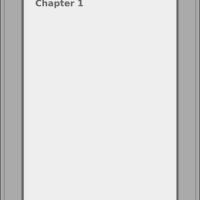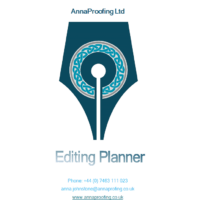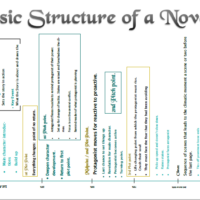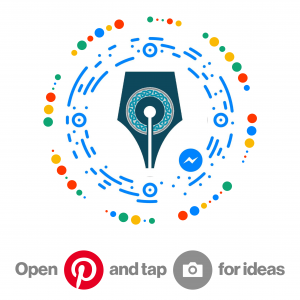
by Anna Johnstone | Jan 22, 2019 | Blog
Good morning!
Welcome to another Tuesday round-up. This week we have another great podcast from The Creative Penn (okay, total fangirl) discussing running a one-person business, the Kobo Writing Life talks about podcasting as content marketing., and the Writership podcast discusses scene and story resolutions. In articles, we have two very informative articles on shrinking author incomes, and another on corporate censorship and their unchecked power. I’ve not had time to check out videos for this week’s round-up, but hopefully, I’ll be able to gather a few links for next week.
Happy reading!
The Disastrous Decline in Author Incomes Isn’t Just Amazon’s Fault
The bookselling behemoth is making life harder for writers, but so is the public perception that art doesn’t need to be paid for.
Publisher's Weekly | Breaking Down Financial Woes for Writers
In an effort to gather as much information as possible about how much authors earned in 2017, the Authors Guild conducted its largest income survey ever last summer, reaching beyond the guild’s own members to include 14 other writing and publishing organizations. In all, the survey drew 5,067 responses from authors published by traditional publishers and from hybrid and self-published authors as well.
Corporate Censorship Is a Serious, and Mostly Invisible, Threat to Publishing
When state or civil authorities blacklist books, the act is correctly labeled censorship. But what is the word when corporations order their subsidiaries to snuff out information?
The Creative Penn | How To Be A Successful Company Of One With Paul Jarvis
What if you could scale your revenue without growing your expenses? What if you could make a living with your writing but still remain alone in your writing room? I discuss these questions and more today with Paul Jarvis.
In the intro, I talk about second-hand book sales [Dean Wesley Smith], how the death of poet Mary Oliver can help deepen our writing [listen to her on the On Being Podcast], why ‘sparking joy‘ is so important (referencing Marie Kondo on Netflix), plus the Kickstarter for Intellectual Property Tracking.
Kobo Writing Life | Ep 133 – Let’s Talk Podcasting with Amanda Cupido
n this week’s episode, Cristina sits down with author and podcast producer Amanda Cupido to talk about her book Let’s Talk Podcasting: The Essential Guide to Doing it Right. Amanda talks about how she got into podcasts, the difference between podcasts and older media such as radio, and she discusses the underrepresented voices in the podcasting community. Amanda also shares her tips for starting your own podcast and the most common roadblock that aspiring podcasters encounter.
Writership Podcast | Ep. 136: Resolutions
We all have some idea of what a resolution is, but what are these scene and story-enders meant to do? In this episode, I explore scene and story resolutions in the context of C. Gabriel Wright’s LBGTQ love story, “Someone.” The editorial mission encourages you to collect resolutions by reading and watching stories—and from your own life.
by Anna Johnstone | Sep 25, 2017 | Advice, Service
A lot is said about how to find the right editor for you but today’s post is about being a good client. I had not intended for this to be this week’s post but given the circumstances, I thought this needed to be said.
Most of us know by now that the business relationship runs both ways. It should be one of mutual benefit and courtesy. Most of you know you need to be polite to editors when introducing your work, and they know to be tactful and treat your work with respect and discretion. Most of you know that most editors are very busy and cannot simply drop everything to make your work an immediate priority, but we still try to be polite when dealing with even the most ‘urgent’ projects. However, there are times when we meet those who don’t know these things, and today was one of them. I would like to draw from my own experience for an example of how not to introduce yourself to an editor. I will not name names. Doing so would be unprofessional and serve no purpose other than to exacerbate the problem, However, I do not feel that ignoring this experience will do any good either. For the moment there are two things authors need to remember;
- Good customer service does not mean being a doormat and accepting poor treatment just to get the client. Good customer service requires effort on behalf of the client too.
- Editors talk… A lot… About everything…
A few days ago I received an unsolicited ‘friend’ request from a member of one of the many writer’s groups I am a part of on Facebook. Recognising the name and thinking it’s about editing as it came on that profile, I accepted it and sent an invitation to my editor’s page to let them know it is there. This is not the same as a ‘request’ and people are free to decline it. I had thought nothing of it since given that my service has been closed for the last few days following the sudden death of my father. It strikes me that if he had really read my page he would have seen my pinned post. I digress…
Today I have experienced possibly the worst example of entitled behaviour since I started fourteen months ago. I arrived at my page to check my messages to find a personal message (not to the page, but to me personally) to say that they had liked my page and would I now like theirs “Only if deserved”. I didn’t get a chance to tell them that I was rather busy and would take a look when I had time because when I gently pointed out that my service page does not engage in like-swapping he began hounding me to just follow the link to his page and hit ‘like’ (even the most technologically naive of us should know not to ‘just follow’ any link.) just because he had liked mine. He had not used my service or put work my way so I am surprised he did. When I told him his behaviour to me was aggressive, he threw a tantrum that would have embarrassed Super Nanny; accusing me of spamming him, even though I explained that the invitation was only that; an invitation, and telling me not to buy his book. At no point did I say I would not like his Facebook page, but I was not given the opportunity to say that I would take a look when I had time because I was blocked before I could and simply because I would not drop everything and give him exactly what he wanted when he wanted it. He wanted me to like his page as an endorsement to his work without ever having read it.
In a way, I am sort of glad that this client has exposed his nature as a difficult client before I had to deal with him. This person is not the type of client this service is looking to engage with. Nor will it be. Ever. What did he do wrong, you ask? Firstly he assumed that he had an automatic right to my time and attention and that I should be grateful for his and jump to his will. It would take me time to go to his page and read his work. Time that I just don’t have this week. Yes, his primary introduction was fairly polite but his tone and demeanour changed to one of affronted aggression the moment things did not begin to happen exactly as he would like. That was his second mistake.
Remember, that editors are more than merely a living spell checker. We have lives and we have self-respect and we talk to each other. We know who the merely difficult clients are. We also know who the ones to avoid are. This is the beauty of being a freelancer. We have the privilege of choosing who we deal with. Imagine he had behaved that way to waiting for staff or someone at a call centre who did not have that option? It is not okay to treat anybody that way and if the cost of not putting up with it means one less rude or difficult client then that price is worth it.
by Anna Johnstone | Sep 14, 2017 | Blog, Service
Here it is!
I’ve now closed down the old editing blog and copied my posts across so I am only managing one website. This site allows you to send enquiries, view prices and services, as well as read news and advice on writing, editing and self-publishing, all in one place.
It also allows you to post testimonials and reviews of my service. Feel free to have a click around and explore and do let me know what you think.
by | Dec 29, 2016 | Blog
Two more days left of 2016, and it has been quite an eventful year. In the latter half of this year, I not only finished my degree but have taken a somewhat, though not wholly, unexpected turn in my plans, career wise. It’s also about this time of year where I give myself a self-audit regarding where I am, where I want to be and how I plan to get there. Don’t worry I am not going to drop everything and start backpacking around Asia or something. Travelling is simply not feasible…yet. The other reason is that I would rather spend the money on my kit for Viking re-enactment.
I knew from the age of around 15 that I wanted to do something involving writing. Sadly, I allowed my parents and teachers discourage me. To cut a long boring story short, I am getting another crack at the whip. When I began my studies in February of 2011, I had my heart set on teaching History in a classroom setting. I got keener as I progressed but in the last year or so I have been considering my Plan B options: Open University grading policy has meant that my results were not what I needed them to be to get on to any of the training courses. I had certainly not seen myself as a self-employed Freelancer I cannot say that it wasn’t a disappointment because the same results from a ‘brick’ university would have got me a 2:1 or even a first, but what’s done is done. I still managed it while looking after 3 kids, so yay me. I am sure my sleep patterns will recover soon, and this (theoretically) lets me off taking my maths GCSE. Again (shudder). That said, I am thinking of taking it anyway just so I have that apparently necessary C that I have managed quite happily without for the last 16 years. I am yet to find a practical use, in my field, for knowing how to calculate the area of a circle.
A suggestion from a fellow editor made me give editing and proofreading a go and I am glad I took him up on his advice. I love it and have since set myself up as a freelancer. This means I have the freedom to set my own hours. It has also taught me that I not only need to learn when to stop working and think about something else for a while but actually do it. Looks like I have a New Year’s resolution to keep for next year. I am feeling extremely positive about this new direction. It’s a teaching role (of sorts), just the one I was expecting and I will get to use all my skills.
NaNoWriMo was an eye-opener, to say the least. I gave it a good shot, but I then ended up with a beta-read that I couldn’t turn down. Next year I’m going to make sure I schedule enough time to do my own writing. I have an idea lined up but I have a strict ‘no spoilers’ rule. It will give me plenty of time to finish the first draft of this month’s, edit and get it ready for publishing. I’m really excited about this too. NaNoWriMo gave me the boot up the bum to make a real start on it. The Densewords ‘Readworthy Fiction’ course (available via Udemy) is also proving to be a massive help where printed writers’ guides were not. I would recommend it to any author.
Finally, 2017 will be the year I get my driving license. I have procrastinated for long enough. I will be 36 in April and have decided that now it’s time to stop being a massive wussy and do it.
To-do-List for 2017.
- Finish first-draft of my first novel, (for publishing in December 2017)
- Learn to drive
- Retake maths (yuck)
- Learn when to stop.
Call to action!
What are your top four priorities for 2017?
by | Dec 6, 2016 | Advice, Blog
Choosing an editor is not easy. The good ones have fees that could choke a horse. However, they are GOOD editors, so the fees they charge are worth it. If you can afford those fees. Unfortunately, many Indie authors just can’t break out that kind of cash.
Enter the rip off artists. They come in many levels of incompetence from authors who just want to make some side cash but don’t really know how to edit, to outright thieves who will take your money and give you nothing in return. Unfortunately, the latter kind thrives on the internet. We have all heard the stories of writers victimised by people calling themselves editors but didn’t even fix spelling mistakes, much less formatting, style, or continuity issues. As an editor myself, I am always learning and improving my craft this kind of thing makes me so angry – not least because it taints all freelance editors with the same reputation – but rest easy. This post is not an estate agent type post telling you to only trust me and ignore all those other editors. Finding the right editor for you is important.
So here are some guidelines for how to find the honest ones, pick an one, and dealing with them. Feel free to pipe up in the comments with any other suggestions I might have missed.
- Go with someone you know or who is recommended. If you can’t do that, the following steps can help.
- Do your research: collect reviews and referrals. How do they respond to complaints?
- Ask for a sample edit from the first chapter of your book, before any money changes hands. A new editor should be willing to do this to get your business, and most honest editors offer this as standard.
- Have someone you already trust and knows what they are doing, read the sample and let you know if they are good.
- Try to find one who will take a deposit up front and charges balance when the job is complete. If they demand the whole balance up front, steer clear. That said, I do expect full payment up front for small jobs (less than 10 pages =2500 words), but 50% of that is refundable if the client is not happy with my work
- Generally, I would advise you to avoid those who demand the full amount upfront. If their work is genuinely substandard –this is not the same as being unhappy about harsh feedback- do not pay the balance and demand your deposit back. New writers should be aware that it often takes several rounds of editing before your work is publishable.
- No editor can wave a magic wand and suddenly turn an unstructured first draft into a literary marvel in one go, and no reputable editor will claim to be able to. It depends entirely on the submitted work.
- Not all editors offer the same services or deal with the same type of text. You need to find out which genre they will work with and what levels they offer. I offer all four levels and am pretty much happy to edit whatever crosses my desk. Others may only deal with certain genres, or offer higher level editing. An honest editor will use your work to assess the level you are writing at and determine what the work needs. They will advise you what needs to be done, and if they are not able to offer the full scope of work required, you may find they will point you in the direction of someone who can.
- If you have ever dealt with an editor who has given you less than the quality of work promised for your money, you still have rights. A freelancer is subject to the same consumer laws as everyone else.
- You want to engage with someone who will cut deep and pick up the typos and mistakes. Remember, a good editor is on your side. A reader is not. The editor wants you to be able to publish your best work possible. You are not looking for ‘nice’. If they go too easy on you or appear to be in a rush to get to print, it can still count as bad editing. The reader will not be nice or give you the benefit of the doubt as it’s your first book. They will, at best, put your book down and never read your work again. At worst, they will leave a scathing review from wherever they bought it, and they will still never read your work again.
- A good editor will not point you at a publisher or insist that their services rely on you going with a particular press. If they do, they are probably taking a back-hander. I’m afraid you will have to do your homework for that too.














